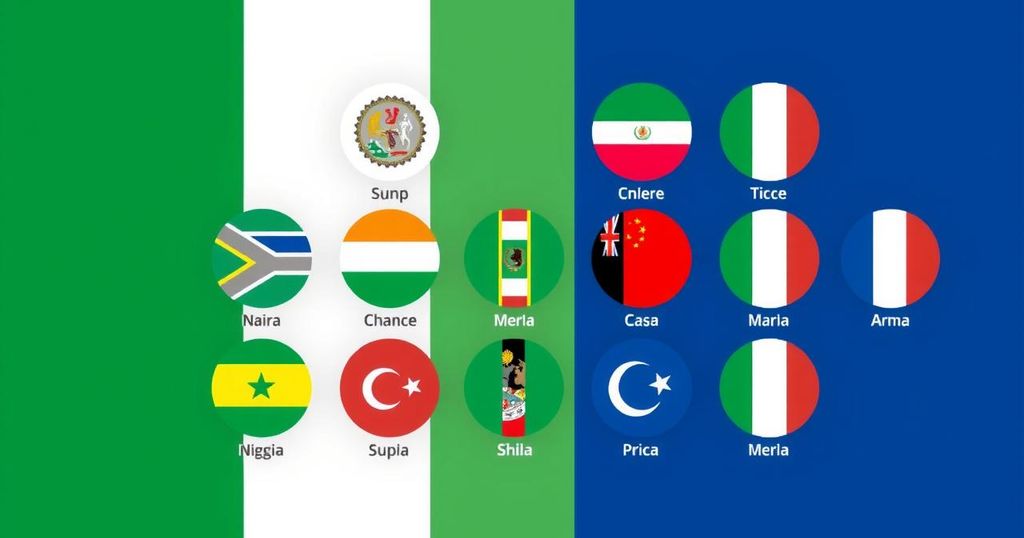At the close of the BRICS summit in Russia, Nigeria and twelve other nations were accepted as partner countries in the BRICS initiative. This expansion will bring the total to thirteen new partner nations. However, BRICS has declared that no new countries will join as full members in 2024. The new partner countries include Algeria, Belarus, Bolivia, Cuba, Indonesia, Kazakhstan, Malaysia, Nigeria, Thailand, Turkey, Uganda, Uzbekistan, and Vietnam. BRICS previously started as an acronym for Brazil, Russia, India, and China, and later included South Africa.
Nigeria and twelve other countries have officially joined the BRICS coalition as partner nations during the recent summit in Russia. This expansion introduces thirteen new nations to the BRICS initiative, which aims to strengthen collaboration among emerging economies. However, it has been decided that BRICS will not welcome any new countries as full members of the alliance for the year 2024. These thirteen nations are pursuing the opportunity to transform their status into full membership in the future. BRICS currently includes the following full members: Brazil, Russia, India, China, South Africa, United Arab Emirates, Iran, Egypt, and Ethiopia. The recently accepted partner countries are Algeria, Belarus, Bolivia, Cuba, Indonesia, Kazakhstan, Malaysia, Nigeria, Thailand, Turkey, Uganda, Uzbekistan, and Vietnam. The BRICS group was first conceptualized by economist Jim O’Neil of Goldman Sachs in 2001, who coined the acronym “Bric” to represent Brazil, Russia, India, and China, which were perceived as rapidly developing economies with the potential to emerge as leading global economic powerhouses by 2050. The four nations formalized their alliance in 2006, and South Africa was integrated into the group in 2010, thus evolving it into the BRICS group that exists today.
BRICS, originally known as BRIC before South Africa’s addition, is an acronym that stands for Brazil, Russia, India, China, and South Africa. The group’s formation was driven by the recognition of these nations as significant emerging economies with a potential influence on global affairs. The idea of BRIC was first introduced by economist Jim O’Neil in 2001 when he recognized that these countries had fast-growing economies. Over the years, BRICS has evolved from a loose association into a more structured coalition that aims to promote cooperation in political, economic, and cultural spheres among its members and accept partner nations to further its objectives.
In conclusion, Nigeria’s acceptance into BRICS as a partner country, along with twelve additional nations, marks a significant development in the coalition’s outreach efforts. While the BRICS alliance will not add new full members in the immediate future, the inclusion of these countries sets the groundwork for fostering deeper economic and political ties within this influential group of emerging economies. The historical context of BRICS underlines its evolution as a player in global economics, with potential implications for international cooperation and development.
Original Source: www.bbc.com






